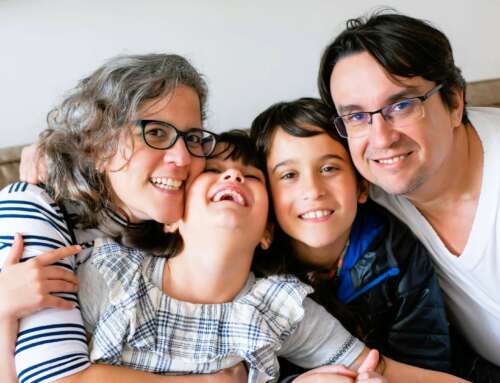There’s a lot of talk about Social Emotional Learning, but what exactly is it? The Collaborative for Academic, Social, and Emotional Learning (CASEL) defines Social Emotional Learning or SEL as “the process through which children and adults acquire and effectively apply the knowledge, attitudes, and skills necessary to understand and manage emotions, set and achieve positive goals, feel and show empathy for others, establish and maintain positive relationships, and make responsible decisions.”
The evidence is clear that Social Emotional Learning does have a positive impact on students’ wellbeing and academic success. Recent reports show that teaching SEL increases academic outcomes by 13%. There is a steady momentum building in Australia around the SEL movement with the goal to continue to build momentum to ensure all schools have an SEL framework embedded within their school to set children up for lifelong success. Many examples of strong SEL are emerging from schools and systems around Australia.
CASEL outlines Five Core Competencies for Social Emotional Learning:
- Self-Awareness
- Self-Management
- Social Awareness
- Responsible Decision Making
- Relationship skills
There are many excellent resources for schools in Australia on the topic of Social Emotional Learning, for example, the Kids Matter project which has been in schools for over 10 years, has a framework that helps schools support students’ wellbeing and mental health. Their framework is structured on four components: positive school community, social and emotional learning for students, working with parents and carers and helping children with mental health difficulties. Kids Matter lists the Second Step program in their programs guide. Second Step is an evidence-based school-wide Social Emotional Learning program based on the five core competencies of SEL that is designed to decrease problem behaviours, increase students’ school success and promote social-emotional competence and self-regulation.
The Social and Emotional competencies taught in the Second Step program also align with the Personal and Social Capabilities within the General Capabilities criteria of the Australian Curriculum. General Capabilities play a significant role in the Australian Curriculum in equipping young Australians to live and work successfully in the twenty-first century.
Social Emotional Learning is also important for Workplace Readiness
More and more business leaders are listing social-emotional skills alongside technical savvy or subject-matter mastery in their key recruitment criteria. But how exactly does social-emotional learning (SEL) translate to the workplace?
Emotion Recognition can help you understand when is or is not a good time to give your boss some bad news or pitch the latest product to a client.
Emotion Management can help you deal with any conflict you may be having in your personal life so you can behave more calmly and professionally in your workplace.
Empathy can help you avoid staff attrition by staying in touch with what your employees are thinking; similarly, it can help you meet the needs of your customers.
Impulse Control is a key workplace skill, especially in our digital world. It’s all too easy to fire off an angry email immediately. Calming down and thinking carefully before pressing “send” can help avoid a crisis.
Assertiveness (as opposed to passivity or aggression) goes a long way toward getting you what you want or need without insulting or offending the other person.
Communication isn’t just about using good grammar and spelling; it’s also about listening respectfully and focusing attention, and it’s essential to teamwork, client relations, and your relationships with your boss, employees, and co-workers.
Problem Solving is an essential skill not only in the workplace but in life. The ability to face roadblocks calmly by thinking through the problem, brainstorming solutions, and trying them out is something any employer will value.
Yes, all these skills are nice to have, but they also translate into concrete workplace advantages. For example, a recent study found that adults who excel at recognising emotions have incomes significantly higher than their less socially skilled peers. Another found that emotional intelligence is a strong predictor of successful job performance. All in all, SEL is an important part of how we prepare our children to become successful adults.
A school wide approach to teaching Social Emotional Learning
The Australian and New Zealand partner of the Second Step Program, Positive Pieces Education, a not-for-profit organisation based in Australia, trialled the Second Step program (currently implemented in 70 countries worldwide) with Australian schools and educators in 2014. The feedback received from the trial schools confirmed that Second Step not only meets CASEL’s five core competencies and is aligned with the Australian Curriculum, but also explicitly teaches empathy, an important part of social awareness. Their feedback guided the Australian adaptation of this well-researched, classroom-based program. Positive Pieces Education provides professional development to educators and supports implementation of Second Step resources into schools across Australia and New Zealand.
– Stephanie Williams
Positive Pieces Education is a Not-for-Profit organisation with a mission to influence the social and emotional well-being of children, teachers and parents in Australia and New Zealand.








Leave A Comment